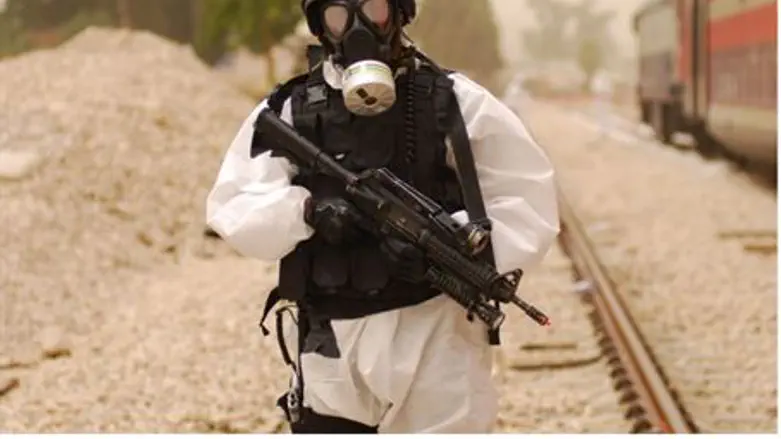
The Organization for the Prohibition of Chemical Weapons (OPCW) was named, Friday, as the winner of the Nobel Peace Prize for 2013.
The Nobel Committee said it was in honor of the OPCW's "extensive work to eliminate chemical weapons." An OPCW team is currently working to dismantle the Syrian government's chemical weapons arsenal, believed to be the largest in the Middle East.
It is the first time OPCW inspectors have worked in an active war zone.
The Hague-based Organisation for the Prohibition of Chemical Weapons was established to enforce the 1997 Chemical Weapons Convention, the first international treaty to outlaw an entire class of weapons.
The OPCW works with 189 member states. Syria is set to be officially inducted as a member country a few days from now, though the country has already agreed to allow OPCW inspectors to undertake the United Nations-backed disarmament mission to destroy Syria’s arsenal of poison gas and nerve agents.
The continuing process of destroying chemical weapon stockpiles that the OPCW has been undertaking is critical to prevent future attacks.
The panel said, “During World War I, chemical weapons were used to a considerable degree. The Geneva Convention of 1925 prohibited the use, but not the production or storage, of chemical weapons. During World War II, chemical means were employed in Hitler’s mass exterminations. Chemical weapons have subsequently been put to use on numerous occasions by both states and terrorists.”
The award recognized the efforts of the OPCW, and during the official announcement, the committee said there is a need to enhance the efforts to do away with such weapons. “Some states are still not members of the OPCW,” the committee said, knocking some member states for not observing the deadlines set by the organization for destroying their own stockpiles, including the USA and Russia.
In past years, the European Union received the prize in recognition of its contribution to peace and reconciliation, democracy and human rights in Europe. Prior to that, Nelson Mandela, US President Barack Obama, the Dalai Lama and Burmese opposition leader Aung San Suu Kyi were recipients of the Noble Peace Prize.